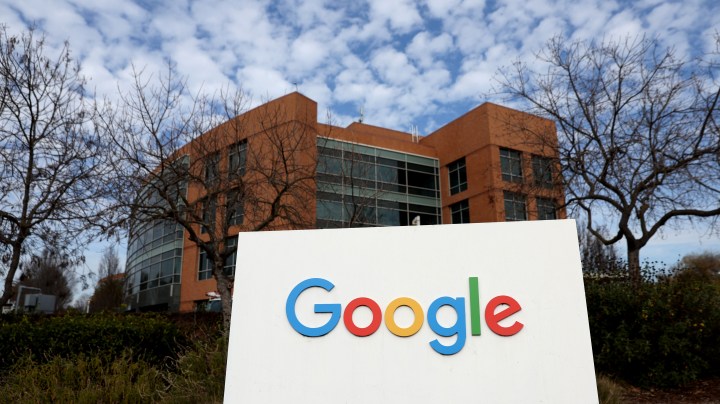
What’s a stock split, anyway?
Share Now on:
What’s a stock split, anyway?

Last week, Google’s parent company, Alphabet Inc., announced that it will execute a 20-1 stock split in July — a move that will lower the company’s share price, but not its overall worth.
When a company splits its stock, it divides each share into multiple shares, increasing the quantity while lowering the price. Georgetown finance professor James Angel compared the procedure to making change: “Think of it as the equivalent of making change for a $20 and getting two $10s.”
In the case of Alphabet’s 20-1 split, the $20 bill is traded for 20 singles. Like breaking a $20, splitting stock doesn’t change the value of the company. It just breaks it into smaller pieces.
“It’s not going to make the company’s operations any more valuable, but it does make things more convenient for the shareholders,” Angel said.
When a stock’s price is high, it can be difficult for small investors to buy and sell. Alphabet’s steep current share price, around $2,770 at the close of trading Thursday, may be prohibitive for a lot of investors. Lowering the price makes the stock more accessible and easier to trade.
A stock split can also be used to send a message, according to Andrew Karolyi, professor of management and dean of Cornell’s SC Johnson College of Business.
“Research has shown that the splitting of the stock is an effective mechanism by which the managers — who have better information than the marketplace does about the future growth prospects of the firm — can credibly signal to the marketplace that better economic opportunities lie ahead,” he explained.
Karolyi said that stock splits are often correlated with positive performance. “Going back almost 50-plus years, the evidence has been around that stock splits are associated with positive share price reactions.”
Alphabet’s share price rose 7.5% following the announcement of the split. However, the news was accompanied by a strong earnings report, making it difficult to attribute the gain solely to the split.
For Alphabet, a lower price could also allow the company to be included in the Dow Jones Industrial Average, a basket of 30 blue-chip stocks that many investors use as a barometer of market conditions. Alphabet’s current price is well above the components of the Dow, where the highest-priced shares belong to United Healthcare, currently at just under $500.
“If you want to be included in the Dow Jones Industrial Average index, you can’t have a price that’s grossly dissimilar to everybody else’s price in the index,” said Evan Rawley, an associate professor of strategy at the University of Connecticut.
While stock splits were once a common occurrence, they have become rare in recent years. In the S&P 500, a broader index than the Dow, only two companies — Tesla and Apple — split their stock in the last few years, compared to almost 50 splits among S&P companies in 2006 and 2007.
One reason for this decline is the rise of technologies that allow investors to trade fractions of a single share.
“Because of fractional trading, the price of your share doesn’t really matter for people. They can buy half a share if they want,” Rawley said. “I think companies are just less interested in doing stock splits because it’s a hassle, it does cost something and it has no real economic value.”
Rawley is skeptical of the utility of stock splits and views them as an administrative adjustment rather than a strategic move of real economic significance. Still, he said the practice of splitting stock won’t disappear anytime soon.
As Tesla, Apple and now Alphabet have demonstrated, some companies with sky-high share prices still find stock splits a useful tool.
There’s a lot happening in the world. Through it all, Marketplace is here for you.
You rely on Marketplace to break down the world’s events and tell you how it affects you in a fact-based, approachable way. We rely on your financial support to keep making that possible.
Your donation today powers the independent journalism that you rely on. For just $5/month, you can help sustain Marketplace so we can keep reporting on the things that matter to you.


















